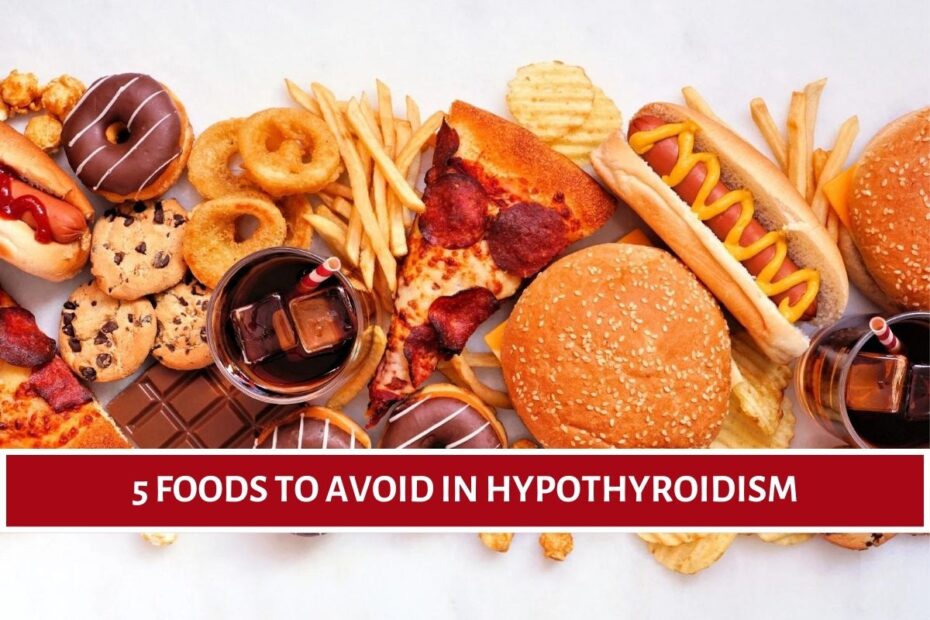5 Foods To avoid In Hypothyroidism:- If you have hypothyroidism, it’s important to know which things can make your symptoms worse or affect how well your thyroid works.
5 Foods To avoid In Hypothyroidism
Here are five types of foods that you might want to avoid or eat less of:
1. Soy Products
Goitrogens are chemicals found in soy products like tofu, soy milk, and soybeans that can stop the production of thyroid hormones. Goitrogens can stop the thyroid gland from absorbing iodine, which is an important nutrient for thyroid health. Some people might be fine with eating a modest amount of soy products, but it’s best to watch how much you eat and talk to your doctor to find out what’s best for you.
2. Cruciferous Vegetables
Goitrogens can also be found in cruciferous veggies like broccoli, cauliflower, kale, and Brussels sprouts. If you eat a lot of these substances or them raw, they can mess up the way your thyroid works. If you like these veggies, you might want to steam or roast them instead of eating them raw because cooking them lowers their goitrogen content by a lot.
3. Processed Foods
A lot of processed foods are high in salt, which can make you retain water and raise your blood pressure, especially if you already have hypothyroidism. Also, prepared foods may have extra sugars and fats that are bad for you that can make weight gain and other hypothyroidism symptoms worse. Limit the amount of prepared foods you eat and focus on whole foods that are high in nutrients.
Also See:- 7 Hypothyroidism-Friendly Foods
4. Gluten-Containing Foods
Gluten can sometimes make inflammation and thyroid problems worse in people with hypothyroidism, especially those who have autoimmune thyroiditis like Hashimoto’s thyroiditis. Wheat, barley, rye, and foods made from these grains all have gluten in them. If you think you might be sensitive to gluten or have been diagnosed with celiac disease, you might want to try a gluten-free diet. Talk to your doctor or nurse for more specific advice.
5. Sugary Foods
Foods and drinks that are high in sugar can make you gain weight and mess up your blood sugar, which can be especially hard for people who have hypothyroidism. Too much sugar can also make you feel tired and cause energy crashes. Cut back on sweet snacks, drinks, and treats, and instead eat more whole foods and use natural sweeteners in small amounts.
Conclusion
Making smart food choices is often an important part of successfully managing hypothyroidism. You can better take care of your thyroid health and general health by staying away from or eating less of foods that can affect thyroid function, like soy products, cruciferous vegetables, processed foods, foods that contain gluten, and sugary foods. Talk to your doctor or a trained dietitian before following any dietary advice. They can make sure it fits your needs and health conditions.
